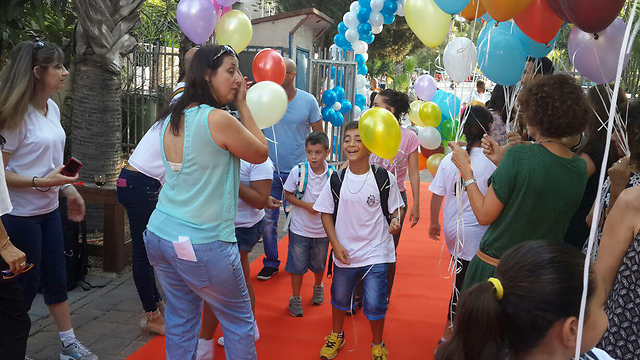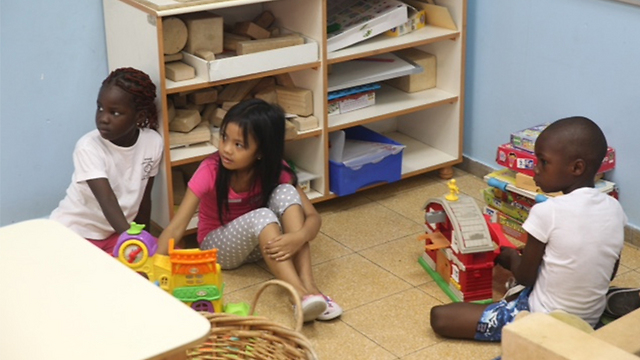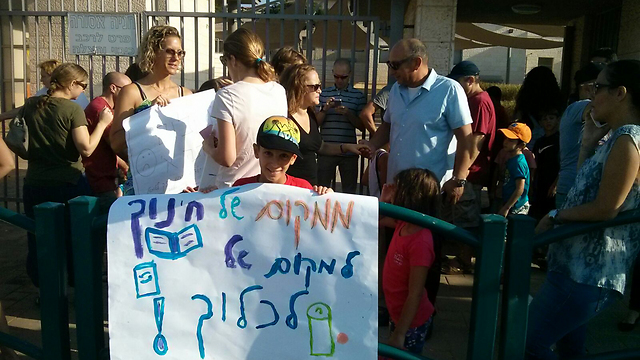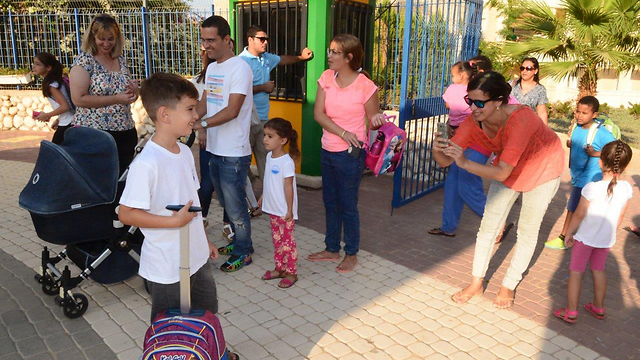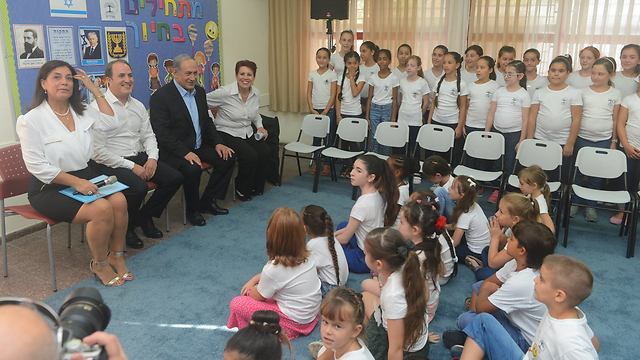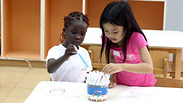
School year starts in Israel for over 2 million students
157,000 first-graders, 166,000 educators, and more math hours mark the new year. Chabad kindergarten in Kfar Yona closed due to parents' opposition to Ethiopian students' inclusion.
The summer break is over as Tuesday marks the start of the school year in nearly all schools and kindergartens in Israel for 2,191,004 students.
Among them, 157,477 are starting the first grade, while 120,284 are beginning their final year of high school. Welcoming them, and all other students, are 166,208 educators in 68,271 classrooms at 4,714 education institutes.
The overall number of students has risen by 2.29 percent compared to last year, when 2,141,000 students were attending schools. Early kindergarten classrooms have experienced a sharper rise of 3.43 percent, and the number of children attending them will be nearly 317,000.
A jump of 3.43 percent was also registered in independent haredi school attendees (institutions affiliated with Ma'ayan HaChinuch HaTorani and others) – 257,000 students compared to 248,000 the previous year. The number of educators has remained the same.
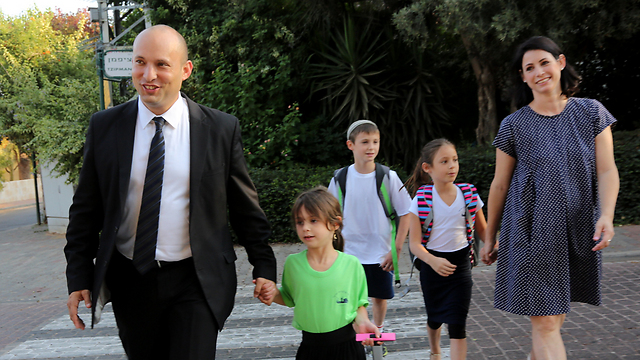
Education Minister Naftali Bennett has recently presented his national plan to increase the number of students graduating from advanced mathematics classes, with the initial goal being doubling their numbers in four years. According to the plan, which is estimated to cost NIS 75 million, the number of advanced math teachers will be doubled within four years from 1,000 to 2,000, and 15,000 hours of classes and study assistance will be added to the curriculum.
In addition, the Ministry of Education will allow all high schools in Israel to teach advanced math classes this year, and the minimum number of students in such classes will be lowered from 14 to six.
"We are also significantly increasing teachers' re-training in mathematics, and will be recruiting people from the high-tech industry," said Bennett.
About 2,900 olim teenagers and children are beginning their first school year in Israel. According to Ministry of Immigrant Absorption statistics, this marks a rise of over 50 percent compared to last year, when their number was approximately 1,900.
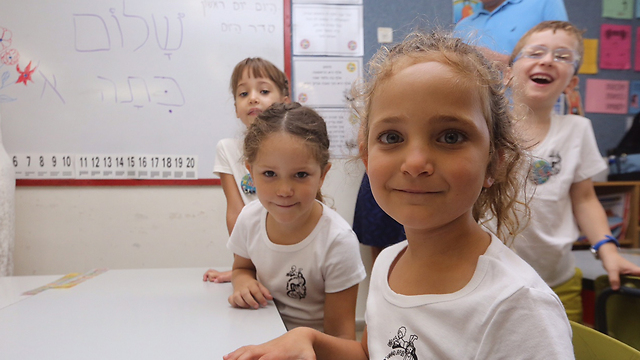
About 360 olim are starting first grade. Figures indicate that the most new olim students are from France (1,150), followed by Ukraine (500), Russia (470), and the United States (270). Around 1,500 of the olim students are starting their school year in Tel Aviv and its general area, about 400 in southern Israel, 400 in Jerusalem and its surrounding area, and around 600 in the country's north.
This school year is starting after Minister Bennett met with Teachers Association chairman Ran Erez Monday evening and convinced him to not start a teacher strike. The association released a statement following the meeting, saying, "Minister Bennett showed great interest and understanding for the problems, and the urgent need to solve them, and promised to immediately start finding solutions in the next few days. We don't see striking as an end, but a means, and so – in order to allow the minister to fulfill his intentions and bring about a solution, not under pressure, we have decided to remove threats of a strike."
While a general strike has been prevented, several educational institutions around Israel are striking independently, with varying degrees of severity. In Kfar Yona, 34 children in kindergarten classes run by the haredi Chabad movement are not attending, due to their parents' objections over Ethiopian-immigrant children being included among them.
Prime Minister Benjamin Netanyahu met with a group of MKs from the United Arab List party, in order to prevent a school strike in Arab-sector schools. The planned strike was intended to protest a lack of funding for infrastructure in Arab cities and villages.
The meeting ended with the parties agreeing on a NIS 900 million injection of funds to Arab municipalities, as part of a "multi-year plan to reduce gaps and promote structural changes."
Netanyahu later described the agreement thusly, "The plan is a significant correction and another step intended to include Arab Israeli citizens in Israeli society as equals."
MK Avigdor Lieberman, chairman of the right-wing Yisrael Beytenu party, called the move "a shot in the foor for the Zionist state."
On Tuesday morning, Netanyahu spoke to students at the Amirim elementary school in Ashdod, telling first graders, "We want you to be excellent students and we want you to be Zionists. We want excellence and Zionism. Be loyal citizens of the state and also succeed – thanks to yourselves – in doing many things. Play soccer better and maybe solve math problems better. Maybe write a composition in Hebrew better. Do all of these things and maybe know English better too. We want you to excel. These are the two things we want. I very much hope that you will succeed and have fun. I hope that you all enjoy your lessons and the breaks and that you are good friends with each other. It is important that you be good friends. May you have much success."
Shahar Hay, Roi Yanovsky, Ahiya Raved, Raanan Ben-Zur, Noam (Dabul) Dvir, Itamar Eichner, Moran Azulay, and Hassan Shaalan contributed to this report.










